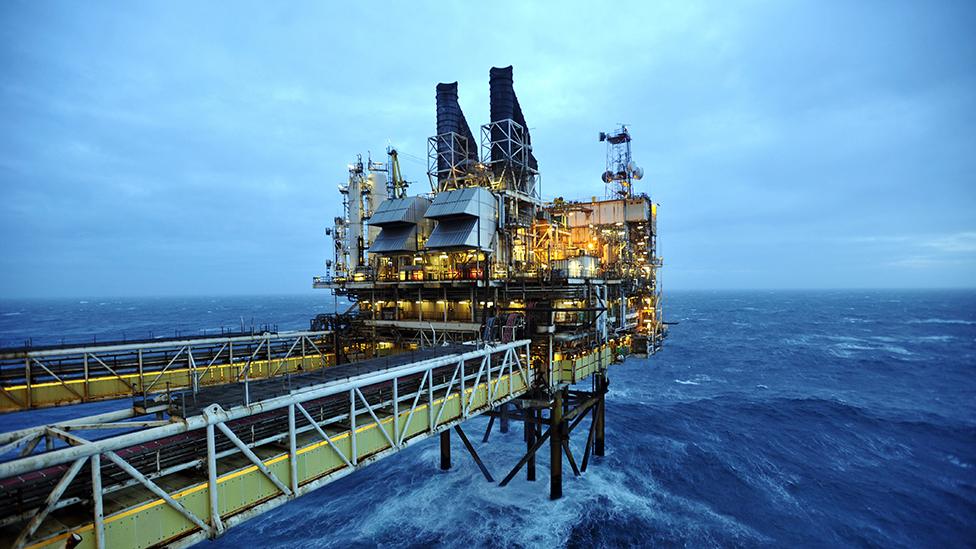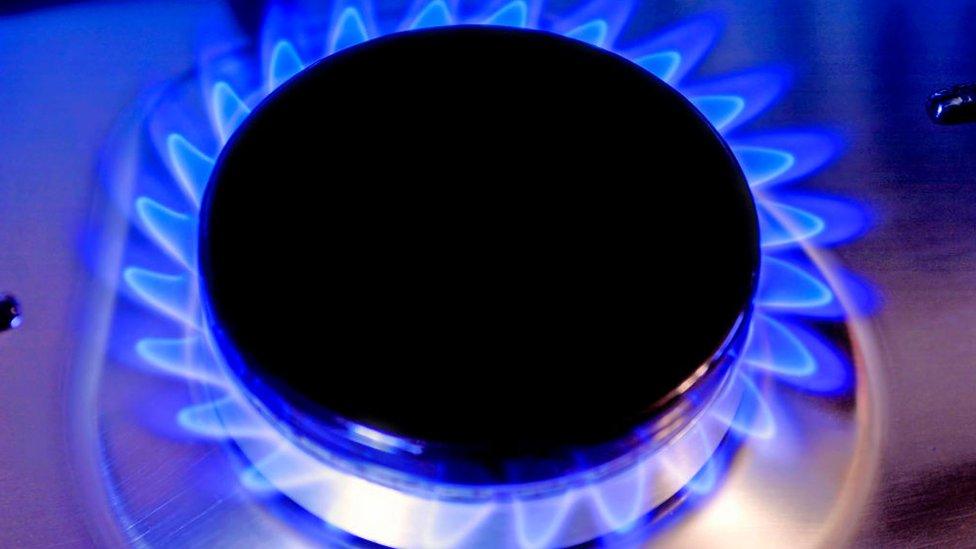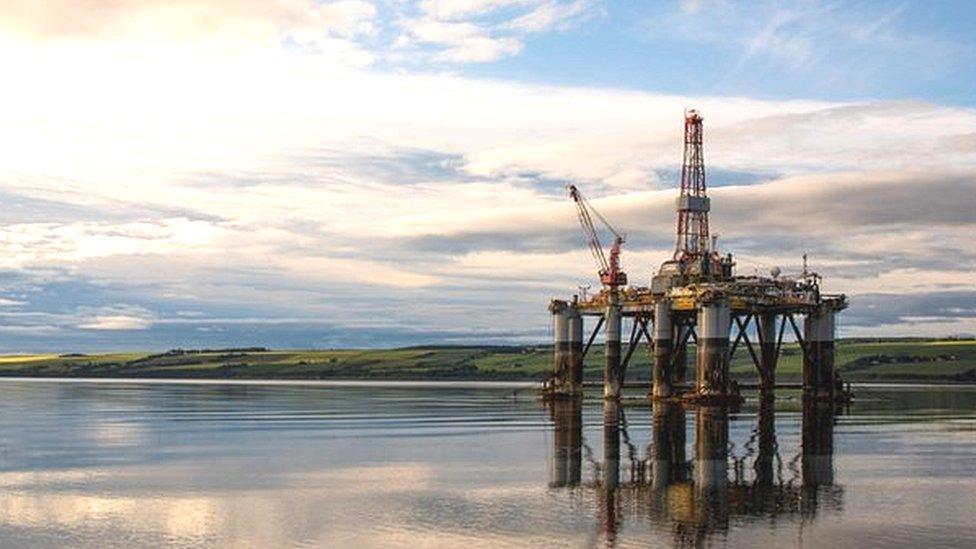Windfall tax will drive away North Sea investors, says industry body
- Published

A new 25% windfall tax on offshore oil and gas operators will "drive away" investors and cut UK energy production, an industry body has warned.
Offshore Energies UK (OEUK) was reacting to the chancellor's announcement of a new Energy Profits Levy, external.
Rishi Sunak said the oil and gas sector was "making extraordinary profits".
But OEUK said the levy "undermined trust and created long-lasting uncertainty over future investment".
The government had previously opposed a windfall tax, which is expected to raise £5bn over the course of the next year to help tackle rising household bills.
But on Thursday, Mr Sunak said his one-off levy would "tax extraordinary profits fairly and incentivise investments", while "helping families with the cost of living".
The new tax will help fund a £15bn package from the government, which includes a £650 one-off payment for eight million low-income households, and a change to the £200 loan scheme for energy bills for all homes in the autumn.

Scotland's Finance Secretary Kate Forbes "cautiously welcomed" the decision to introduce a levy on energy companies "benefiting from significant profits".
She added: "The introduction of a windfall tax is a start, but as a stand-alone measure this means Scottish industry is carrying the weight of UK-wide interventions."
But OEUK chief executive Deirdre Michie described the levy as "a backward step".
She said: "This is a disappointing and worrying development for industry, the shockwaves of which will be felt in offshore energy jobs and communities, and by consumers, for years to come.
"In April we welcomed the government's British Energy Security Strategy, which pledged 'secure, clean and affordable British energy for the long term'. We thought long-term meant years or decades, but it seems to have meant just a few weeks.
"The strategy's focus was on attracting investment to build a greener energy system to reduce dependence on imports. These new taxes will achieve the exact opposite of what the government promised in April.
"They will drive away investors and so reduce UK energy production. That means less oil, less gas, and less renewables. It also makes it much harder for the UK to reach net zero by 2050."
'Sticking plaster'
Ms Michie also warned that the hardest hit would include not just the major operators, but companies in the UK supply chain providing specialised equipment and services to the oil gas and renewable industries.
"The oil and gas sector supports about 200,000 UK jobs - most of them in such companies - whose workers will now be facing a less-secure future," she said.
The Scottish Chambers of Commerce also criticised the new levy.
Chief executive Liz Cameron said: "It is extremely disheartening that the UK government have chosen to introduce this additional levy which will inevitably deter investment and make Scotland and the UK a less attractive market internationally, adding to the pressures facing the business community.
"Whilst it's right that the government take steps to ease the cost-of-living crisis, this levy is a short-term solution to the long-term energy challenges businesses and consumers continue to face."
She added: "Rather than supporting investment in decarbonisation and energy security, this levy will only serve as a sticking plaster for rapidly rising bills, does little to support businesses and is ultimately a short-sighted and opportunistic policy from the Treasury.
- Published22 October 2024

- Published27 May 2022

- Published26 May 2022
